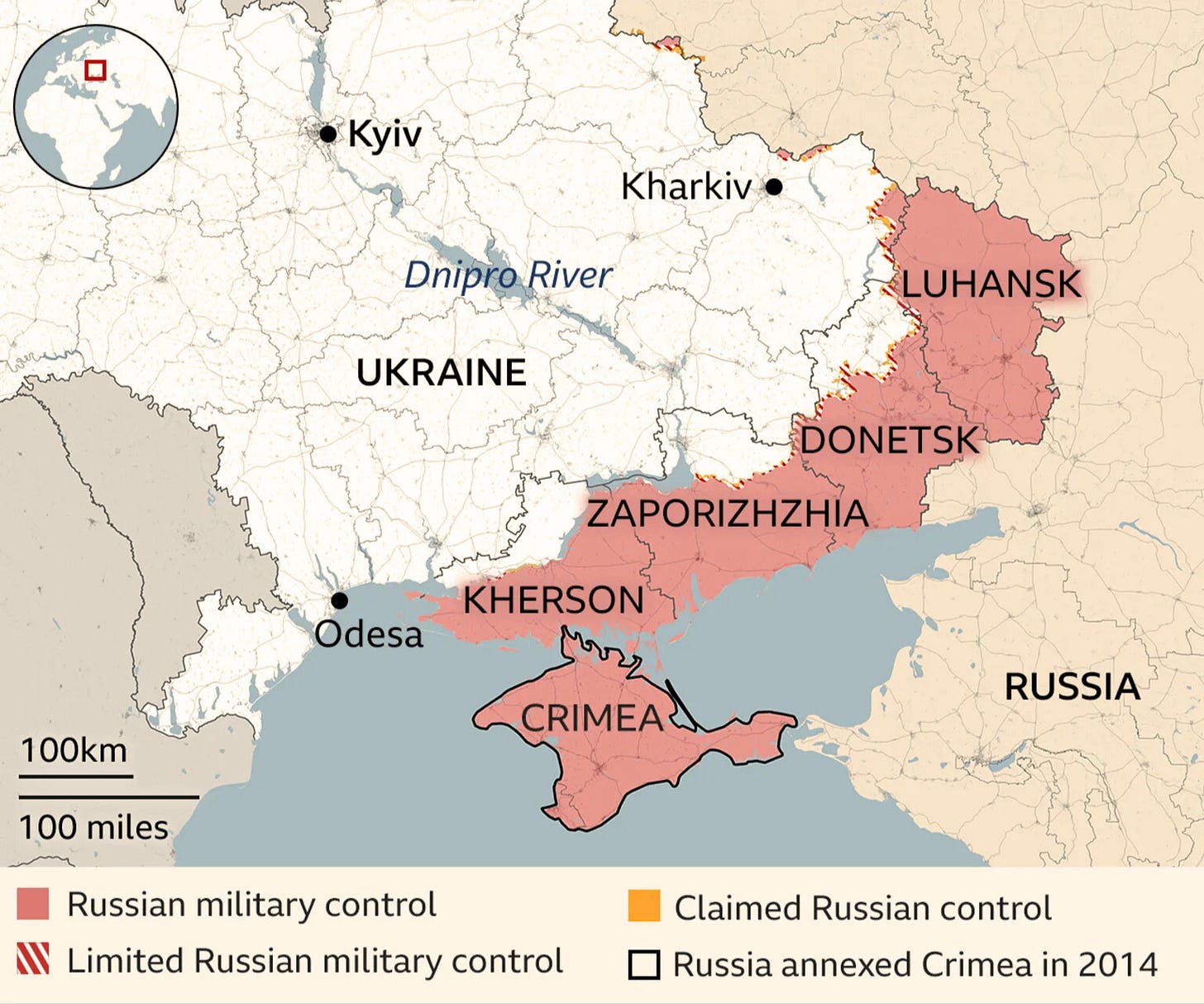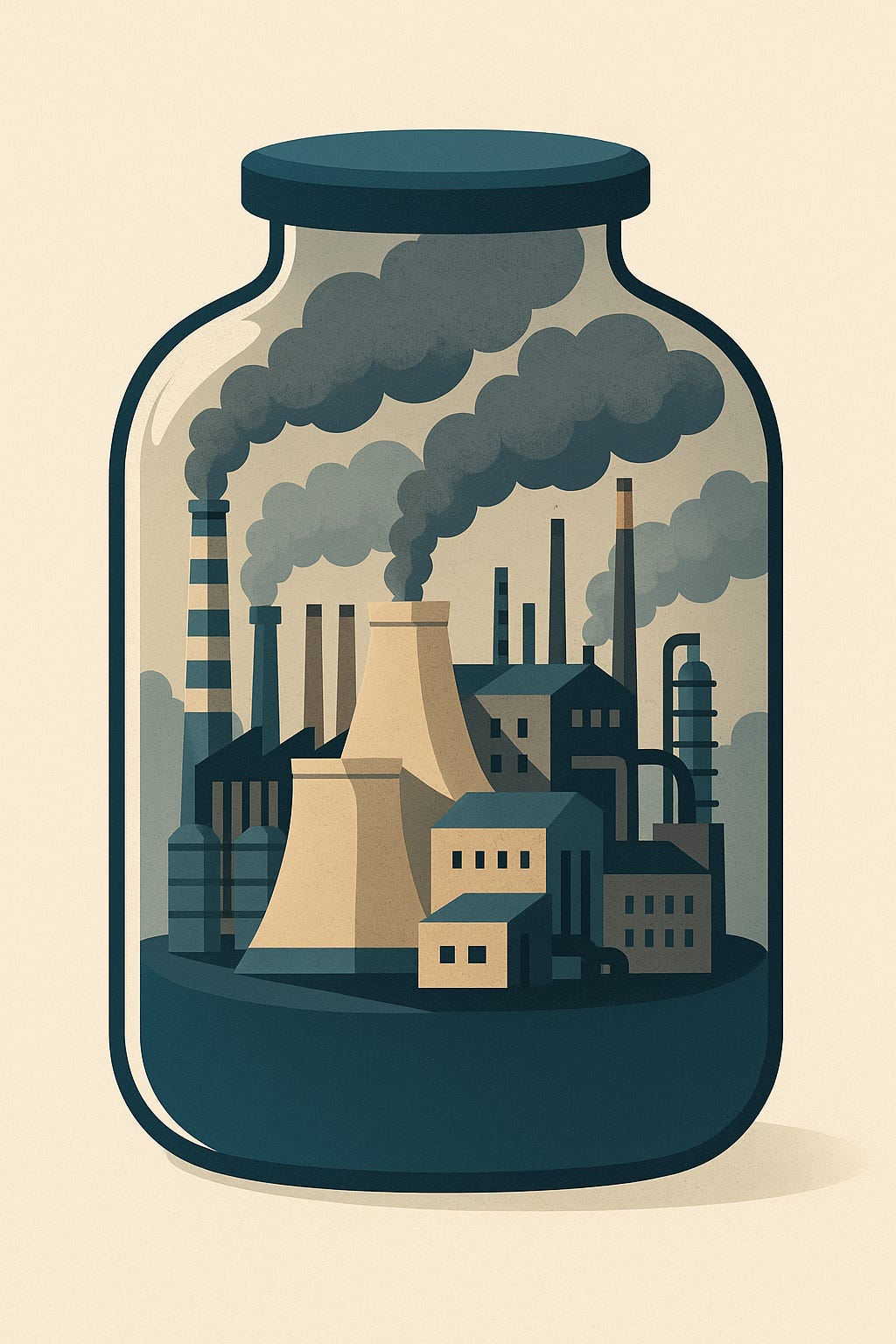10 Things Global News - 27th August 2025
The news from around the world
UN Condemns Deadly Strikes on Gaza Hospital
US, Russia Secretly Weigh Energy Deals in Peace Talks
Ukraine Confirms Russian Entry Into Dnipropetrovsk
Europe Threatens Iran With UN Sanctions Snapback
Colombia Confirms 34 Soldiers Kidnapped in Guaviare
US Imposes 50% Tariffs on Indian Exports
French PM Bayrou Faces Likely Confidence Vote Defeat
FEMA Suspends Staff After Letter Criticising Trump
Trump Comments Stir Debate Over Dictatorship
China to Cap Carbon Emissions from 2027
The UN has demanded accountability after Israeli strikes on Nasser Hospital in Khan Younis killed at least 20 people, including five journalists and four health workers. The attack unfolded in two stages on Monday: an initial strike killed Reuters cameraman Hussam al-Masri, followed minutes later by a second strike that hit journalists and rescue workers rushing to the scene.
The Israel Defense Forces said the strikes targeted a Hamas-operated observation camera but provided no evidence, claiming six militants were among the dead. Hamas disputed this, stating no fighters were killed and accusing Israel of fabricating names. News agencies and human rights groups questioned Israel’s explanation, noting the area was regularly used by media crews.
International criticism has mounted, with UK Prime Minister Keir Starmer calling the attack “completely indefensible.” Protests in Israel the following day demanded a hostage deal and an end to the war. Mediators said Israel has yet to respond to the latest ceasefire proposal.
Sources: BBC, Al Jazeera, New York Times
US and Russian officials have secretly discussed potential energy deals alongside recent peace talks on Ukraine. According to multiple sources, the proposals included ExxonMobil’s possible return to the Sakhalin-1 oil and gas project, which it left in 2022 after sanctions, and Russia’s purchase of US equipment for liquefied natural gas projects under Western restrictions.
Talks also explored US purchases of Russian nuclear-powered icebreakers, as well as broader investment incentives aimed at encouraging Moscow to ease its war stance and Washington to relax sanctions. The discussions took place during US envoy Steve Witkoff’s meetings in Moscow and were revisited at the Alaska summit on August 15.
The deliberations mark a shift toward bilateral US-Russia channels, moving away from EU-focused energy plans. Any return by Exxon would hinge on regulatory approval, with a recent decree by President Vladimir Putin opening a pathway for foreign shareholders to regain stakes in Sakhalin-1.
Sources: Reuters, Eurasia Business News
Ukraine has acknowledged for the first time that Russian forces have crossed into the Dnipropetrovsk region, a key industrial area previously spared from large-scale fighting. Ukrainian commanders said Moscow’s troops are attempting to establish a foothold, though Kyiv’s military insists it still controls contested villages such as Zaporizke and Novohryhorivka, where heavy clashes continue.
Battlefield monitors reported that Russian units have occupied both villages, suggesting consolidation for further advances. Any Russian progress into Dnipropetrovsk would carry symbolic weight, as the region is Ukraine’s second most important industrial hub after the Donbas. Moscow has not claimed to annex the region but has repeatedly attacked its main cities, including Dnipro.
Source ISW and AEI’s Critical Threats Project
The fighting comes as peace efforts falter. President Volodymyr Zelensky has pressed Western allies for stronger security guarantees, while German Chancellor Friedrich Merz urged Moscow to accept talks if it is serious about ending the war. Meanwhile, Kyiv eased travel rules to allow men aged 18 to 22 to leave and return freely.
Sources: BBC, The Guardian
France, Germany and the UK have warned they will trigger the “snapback” mechanism to reimpose all UN sanctions on Iran unless Tehran returns to nuclear negotiations and allows full inspections. The move follows claims by the International Atomic Energy Agency that Iran holds more than 400 kilograms of uranium enriched up to 60%, far above the limits set in the 2015 nuclear deal.
The sanctions, originally imposed between 2006 and 2010, would automatically return within 30 days once snapback is initiated, restoring arms embargoes, asset freezes, and restrictions on missile development. The European deadline is the end of August, as the authority to use the mechanism expires in October.
Iran has rejected the proposal, arguing it no longer owes obligations after the US abandoned the accord in 2018. Officials in Tehran have threatened to withdraw from the Nuclear Non-Proliferation Treaty if sanctions are reimposed, further deepening tensions.
Sources: Associated Press, CNN
Colombia’s government has confirmed that 34 soldiers were kidnapped in the rural municipality of El Retorno, Guaviare, after clashes with dissident factions of the former FARC guerrilla movement. Defense Minister Pedro Sánchez described the abductions as a kidnapping, not a detention, stressing the soldiers were being held against their will.
The troops were taken on Sunday after a military operation against the Estado Mayor Central (EMC), led by Iván Mordisco. Authorities reported the killing of at least 10 dissidents, including a commander, and the capture of others. During the retreat, civilians in the area blocked the soldiers’ exit and forced them to remain.
The Guaviare region has seen escalating violence this year as rival EMC groups fight for control. Recent attacks have included car bombings in Cali and the downing of a police helicopter in Antioquia, underscoring the continuing threat from FARC dissidents despite the 2016 peace accord.
Sources: El Pais, Al Jazeera
The United States has doubled tariffs on a wide range of Indian exports, bringing the total levy to 50%. The move, effective August 27, was linked to India’s purchases of Russian oil and defense equipment, which Washington argues help fund Russia’s war in Ukraine.
The tariffs cover about two-thirds of India’s $86.5 billion in annual exports to the US, hitting textiles, leather, seafood, and gems particularly hard. Electronics and pharmaceuticals remain exempt. Analysts warn shipments in affected sectors could collapse by up to 70%, with overall exports to the US potentially falling 43%. Economists estimate the tariffs could shave as much as 0.8 percentage points from GDP growth.
Prime Minister Narendra Modi said India would remain resilient, while officials outlined plans for export support and reforms, including a possible GST overhaul. Trade talks have stalled, with Washington postponing a scheduled round of negotiations this week.
Sources: The Economic Times, Bloomberg
France is bracing for renewed political turmoil as Prime Minister François Bayrou appears almost certain to lose a parliamentary confidence vote on 8 September over his austerity budget and debt-reduction plan. Bayrou, 74, said he would “fight like a dog” to remain in power, but opposition parties from the far right and left have vowed to oust him.
The plan calls for €44 billion in cuts, including freezing welfare spending, scrapping public holidays, and reducing healthcare funds. Critics say the measures unfairly target the poor and pensioners while sparing the wealthy. Bayrou has attempted to rally support by proposing new taxes on high-income individuals, but polls show his popularity has sunk to historic lows.
Investors reacted sharply, with bank shares falling and bond yields rising. A protest movement is scheduled to begin on 10 September. If Bayrou is ousted, President Emmanuel Macron could face his seventh prime minister since 2022.
Sources: The Guardian, France 24
The Federal Emergency Management Agency has suspended more than 20 employees after they signed an open letter to Congress warning that Trump administration policies had undermined the agency’s disaster response capacity. The “Katrina Declaration,” released Monday and signed by nearly 200 current and former FEMA staff, argued that post-Katrina improvements were being dismantled through budget cuts, staffing reductions, and leadership changes.
Some employees who attached their names received emails on Tuesday placing them on paid administrative leave, instructing them not to access FEMA systems or facilities. The suspensions coincided with the 20th anniversary of Hurricane Katrina, a storm that drove sweeping reforms in federal disaster management.
The letter accused the administration of erasing progress, cutting grants to local governments, and appointing unqualified leaders. FEMA’s acting press secretary defended the changes as reforms to improve accountability, saying critics were resisting necessary restructuring. The suspensions follow similar actions against staff in other federal agencies who voiced dissent.
Sources: New York Times, CBS News
President Donald Trump denied he aspires to be a dictator but said many people might support one. Speaking at a rally and later at a cabinet meeting, Trump repeated that critics call him a dictator, adding, “A lot of people are saying, ‘Maybe we’d like a dictator.’ I’m not a dictator.” He argued that supporters value his strong stance on crime, particularly in cities led by Democrats.
Trump clashed with Illinois Governor JB Pritzker after threatening to deploy the National Guard in Chicago, saying he had “the right to do anything I want to do.” Pritzker responded: “No, Donald. You can’t do whatever you want.” Trump suggested he would prefer states request deployments but insisted he could act unilaterally if needed.
Recent polling shows significant numbers of Republicans support reducing checks on Trump’s authority, with some endorsing unchecked presidential powers, fueling debate about authoritarianism in U.S. politics.
Sources: CNN, New York Times
China announced it will introduce absolute emissions caps in certain industries by 2027, tightening its carbon trading system. The move marks the first time Beijing will shift from intensity-based benchmarks to fixed caps, with a goal of establishing a nationwide emissions trading scheme (ETS) by 2030.
Currently, firms receive free carbon allowances based on benchmarks. If emissions exceed quotas, companies must purchase allowances from the market, while surpluses can be sold. The new framework will combine free and paid allowances, with participation widened to banks and financial institutions to boost liquidity.
Analysts expect sectors such as chemicals, petrochemicals, papermaking, and domestic aviation to be included. China has already pledged to expand coverage to steel, cement, and aluminium, representing about 60% of its greenhouse gas emissions. Experts say the timeline provides clarity, though the effectiveness of the market in cutting China’s vast emissions will depend on how the caps are enforced.















